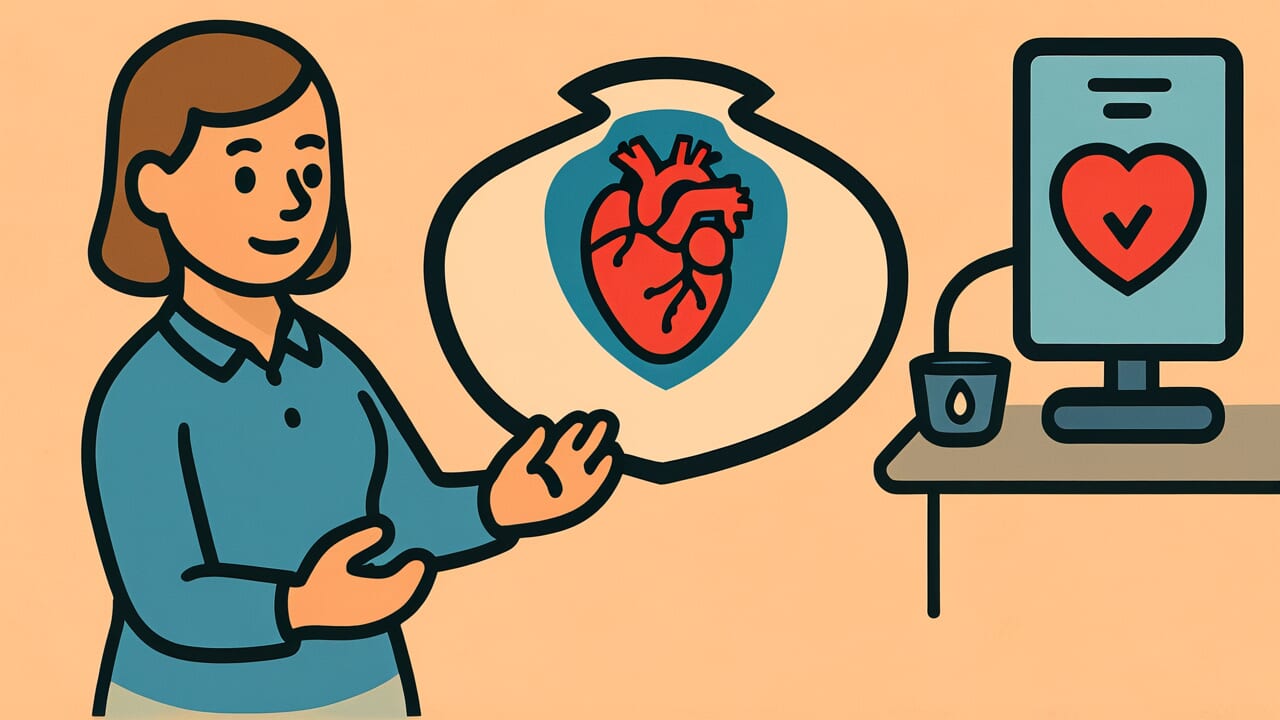How to Read “absence makes the heart grow fonder”
Absence makes the heart grow fonder
AB-sence makes the heart grow FON-der
All words use standard pronunciation.
Meaning of “absence makes the heart grow fonder”
Simply put, this proverb means that being away from someone you care about makes you love and appreciate them more.
The basic idea is straightforward. When someone important leaves for a while, you miss them. That missing feeling actually strengthens your emotional connection. Distance creates a special kind of longing that reminds you how much that person means to you.
We see this happen all the time in modern life. College students miss their families more than they expected. People in long-distance relationships often feel deeper love during separations. Even friends who move away become more precious in our memories. The everyday annoyances fade away, and we remember only the good times.
What’s interesting about this wisdom is how it reveals something surprising about human emotions. You might think that being apart would weaken relationships. Instead, the opposite often happens. Separation gives us space to realize what we truly value. It’s like stepping back from a painting to see its full beauty.
Origin and Etymology
The exact origin of this phrase is unknown, but it appears in English literature from the early 1800s. The concept itself is much older and appears in various forms across different languages. Early versions focused on how distance could strengthen emotional bonds.
During the 19th century, people traveled far more slowly than today. Separations lasted months or even years. Letters took weeks to arrive. In this context, maintaining emotional connections across distance became crucial for relationships. Sayings like this one helped people understand their feelings during long separations.
The phrase gained popularity as travel became more common but still difficult. Soldiers, sailors, and merchants regularly left families behind. The saying spread through letters, books, and conversations. It offered comfort to those dealing with separation. Over time, it became a standard way to describe how distance affects love and friendship.
Interesting Facts
The word “absence” comes from Latin meaning “to be away from.” The phrase uses a gardening metaphor with “grow,” suggesting that love is like a plant that can flourish under certain conditions. This proverb follows a common pattern in English sayings where emotional states are described using physical growth terms.
Usage Examples
- Mother to daughter: “I know you miss your boyfriend while he’s studying abroad, but this time apart might actually strengthen your relationship – absence makes the heart grow fonder.”
- Friend to friend: “You’ve been complaining about your roommate, but now that they moved out you keep talking about how much you miss them – absence makes the heart grow fonder.”
Universal Wisdom
This proverb captures a fundamental truth about how human attachment works. Our brains are wired to notice what’s missing more than what’s present. When someone important disappears from our daily routine, we suddenly become aware of all the ways they enriched our lives. This isn’t just sentiment – it’s how our emotional systems actually function.
The wisdom reveals something deeper about human psychology. We adapt quickly to good things in our lives, taking them for granted. Psychologists call this hedonic adaptation. But separation breaks this pattern. Suddenly, we can’t rely on that person’s presence anymore. Our minds start actively remembering and valuing what we’ve lost. The ordinary becomes precious when it’s no longer ordinary.
This pattern exists because it helped our ancestors survive. Strong emotional bonds kept groups together across difficult separations. Those who maintained connections during hunting trips, seasonal migrations, or tribal conflicts had better chances of reuniting successfully. The pain of missing someone motivated people to return and rebuild their relationships. What feels like emotional suffering actually serves an important purpose – it preserves the social bonds that keep us alive and thriving.
When AI Hears This
Our brains act like sneaky accountants when people leave our lives. We automatically delete boring memories like watching TV together. Meanwhile, we save and replay the exciting moments over and over. This creates a fake version of the person that’s much better than reality.
This memory editing happens because humans hate losing things more than gaining them. When someone disappears, our minds panic and start hoarding good memories. We convince ourselves the person was perfect to justify our sadness. It’s like our emotions refuse to accept that we might not actually miss them.
What’s brilliant is how this trick actually helps us survive heartbreak. By creating a highlight reel, we avoid the full pain of loss. We get to keep a beautiful story instead of messy reality. This lets us heal while still honoring what mattered to us.
Lessons for Today
Understanding this wisdom helps us navigate the complex emotions that come with separation. Instead of fearing that distance will weaken relationships, we can recognize that temporary separations often strengthen genuine connections. The key insight is learning to distinguish between relationships that grow stronger with distance and those that simply fade away.
In our personal relationships, this knowledge offers comfort during difficult goodbyes. Whether it’s a friend moving away, a partner traveling for work, or children leaving home, we can trust that real love often deepens rather than diminishes. The sadness of separation becomes evidence of the relationship’s value. At the same time, we learn to appreciate people more fully while they’re present, knowing how much we’ll miss them when they’re gone.
The challenge lies in balance. Too much separation can strain even strong relationships, while too much togetherness can lead to taking each other for granted. The wisdom suggests that healthy relationships need both presence and absence – time together to build memories and time apart to appreciate what we have. This understanding helps us make better decisions about when to hold on tightly and when to give each other space to grow.



Comments